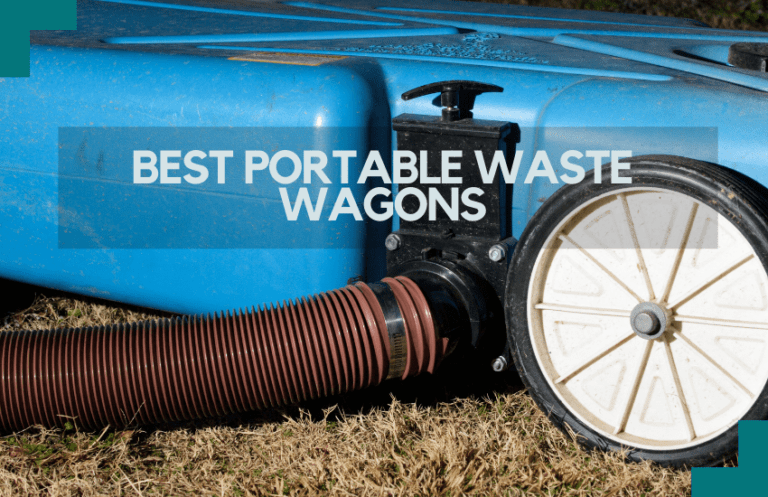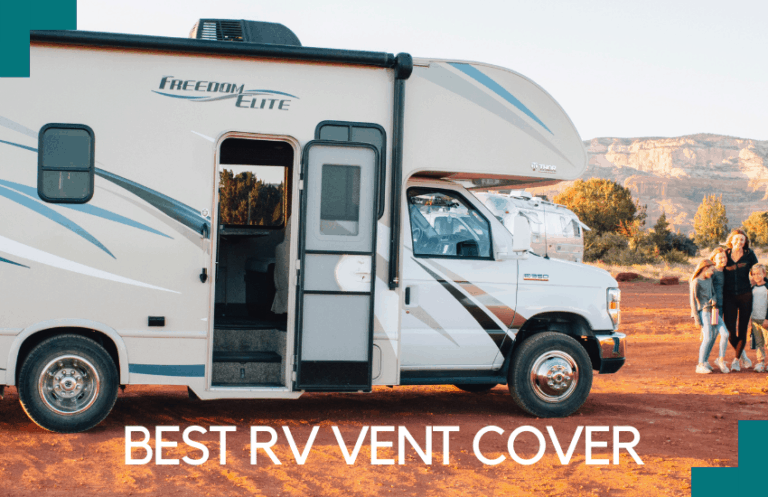What is the Best Size Generator for Your RV
- Airstream vs Oliver Comparison: Which Is The Best? - April 21, 2024
- The Best Travel Trailers for Jeep Wrangler On The Market - September 15, 2022
- The Best Travel Trailers Under 4000 lbs for Your Next Trips - September 15, 2022
Whether you are going for a weekend escape or are a full-time RVer, a generator has become essential for an RV owner. Today we will help you find out what size generator is best for your RV.
Before we deep dive into the size of the generator, there are many things you will need to know. Does the generator run on gas, propane, or diesel? Will it suit your energy requirements? What are the features and potential drawbacks?
Hopefully, this guide will make it a lot easier for you to decide which size generator is best for your RV. Below is a quick comparison of the 3 best generators we have chosen for this guide.
| Model | Running Watts | Fuel | Price |
| Champion Dual Fuel RV Ready Generator | 3400 Watts | Gasoline and Propane | Check for latest price |
| DuroStar DS4 Generator For RV | 3300 Watts | Gasoline | Check for latest price |
| Champion Digital Hybrid Open Frame Inverter | 3500 Watts | Gasoline and Propane | Check for latest price |
Are you thinking of going green with your energy requirements? Here is our list of the best solar panels for RVs you can buy in 2021!
Types of Generators Based on Fuel
Generators are powered by fossil fuels like diesel, gasoline, or propane. Below are the pros and cons of each type of generator.
Gasoline
Gasoline generators are the most common type for RVs for many reasons. Gasoline is easily accessible and relatively easy to store. These generators produce less sound, and most of them come with wheels to move them around easily. They are also efficient when it comes to burning fuel and the running they have to offer.
The main drawback of using gasoline for generators is that gasoline is highly flammable. You have to be very careful while storing it. The shelf life of gas is also low as compared to propane or diesel. Not to forget, gasoline adds a lot to polluting the environment.

Pros
- Gasoline is easily accessible
- Gasoline is easy to store
- Gasoline generators produce less sound
- Gasoline generators are more efficient
Cons
- Gasoline is highly flammable
- It has a low shelf life
- It is not environmentally friendly
Propane
Propane generators are generally not very efficient when it comes to running time and power output. That said, propane can be stored safely in cylinders and have a longer shelf life compared to other fuel sources.
Propane generators are very quiet and more environmentally friendly when compared to gasoline and diesel-powered generators.
However, these generators don’t run at total capacity, i.e. you will need to buy a bigger generator than usual to power up your appliances, translating into more money out of the pocket.
Pros
- Propane can be stored safely in cylinders
- Propane has a longer shelf life
- Environmental friendly
- Quiet operation
Cons
- Don’t run at full capacity.

Diesel
Diesel generators are the most potent types of generators. They are typically used in bigger RVs and are the most efficient in power output. Diesel burns slowly and can be stored safely in the back of the RV.
Diesel has a reasonable shelf life and is also readily available. The main plus point of these generators is that they need less maintenance as compared to other generators.
Diesel generators also come with a couple of drawbacks. First of all, they are pretty noisy. Second, diesel is a little more expensive than the rest of the fuel options. Diesel generators are also not environmentally friendly, and diesel needs to be stored safely as the risk of it tipping over and causing a hazard is always there.
Pros
- Very efficient
- Low maintenance
- Easily available
Cons
- Loud
- Not environmental friendly
- Diesel can tip over in rough terrains
Almost all generators come with an efficiency rating which indicates the amount of fuel required to run a set number of hours at total capacity. You need to know it as you don’t want to be refueling your generator now and then without knowing how much fuel it needs. So make sure you have enough fuel for at least 24 hours before going on a trip to avoid getting off-grid at times when you don’t want to.
Want to be able to connect with the world when you’re on the move? Check out our complete guide on how to get high-speed internet in your RV.
Things to Consider When Buying A Generator
Before buying a generator, consider these factors to help you make the best choice.
Power Requirement
General appliances such as the blender, mixer, dehumidifier, and others don’t take up as much power as the air conditioner or refrigerator. You will need to know the power requirements of the appliances you want to use in your RV.
If you are frequently on the road and need a reliable power source for your appliances, you will need a lot more wattage on your generator than usual. The power requirements of the appliances also depend on the model and their age.
The best way to know your power requirements will be to list down the number of appliances you use and calculate the amount of power required. Please note that a fridge and an AC take more power to start than keep them running on idle.
Once your list is complete, refer to the stickers on the appliances or their user manuals to check the starting powers. Once you have your power requirements, select a generator that provides 10% more power than your actual requirement to be on the safe side.

Weight
Larger generators are heavier and take up quite a lot of space. But most generators come with a wheel kit, making it easier to maneuver them. However, loading and unloading a generator, in most situations, can be daunting.
A lighter generator is always preferred because it is relatively easy to handle. That is why an inverter generator is normally preferred nowadays as it is lighter and easier to maneuver. I also recommend having two small generators hooked up in parallel for easy operation as it would take much less space than a large one and will be easy to move around if needed.
Amps
An RV usually offers a 30 amp service or a 50 amp service. Most generators come in either of the two amperages. Adapters for converting amperage are easily available on the market in case there is a mismatch.
Please note that if the power requirement of your RV is higher than the generator you have bought, it can result in the generator not taking the load and tripping. Please make sure to turn off the breakers of appliances that are not being used to decrease the load on the generator for smooth operation.
Portability
Portability is another important factor when it comes to buying a generator. Nearly all major brands produce portable and lightweight generators to meet the demands of RVs.
There are two types of generators when it comes to portability for your RV:
- built-in generators that come preinstalled in the RV
- portable generators that typically come with a wheel kit
A built-in generator is fully capable of taking the whole load of the RV. It is easier to operate and uses the same fuel your RV uses. But the drawback of this type of generator is that the service of the generator is a little tricky as it cannot be moved. Also, since it is fixed within the RV, the generator cannot be used for any other purpose.
On the other hand, a portable generator can be easily moved around for servicing and can also be used for other purposes when needed. The drawback of this kind of generator is that you might require extra wiring, and you will need to find or make space for this generator in your RV in a safe and secured way.
Noise
Larger generators tend to make more noise as compared to smaller ones. The noise of a generator can potentially ruin your outing and that of nearby campers, not to mention disturbing the wild.
I pay close attention to the noise a generator makes, and I’ve only bought ones that are easy on the ears. A noise reading of 70 dB or more is considered loud for an RV generator. Make sure to invest in a quiet generator rather than a cheaper and noisy generator.
Efficiency
Fuel efficiency is another important factor when it comes to buying a generator. No one wants to keep refilling their generator every couple of hours. It is important to select an efficient generator that provides increased running time and more power output per gallon. These specifications are mentioned in either the user manual or the brochure.
Fuel and Fuel Capacity
The type of fuel a generator uses can have a significant impact on your decision to buy a generator. It is always preferred to go for a generator that uses the same fuel as the RV itself. This will put less burden on you to extra stock fuel for the generator.
The fuel capacity is also an important factor. I recommend going for generators with enough capacity that you only need to refill them after 6 hours of use, especially if you are a regular camper.

Price
This is the most crucial factor in my opinion as the money you can invest will significantly impact your buying decision. If you have the money, inverter generators are more energy-efficient than generic ones.
It is always nice to have some extra features in a generator such as a remote on and off, an LED fuel gauge indicator, an auto shut-off button, and more. All this adds more value to your generator and also a little adds to the price tag.
A breaker box is also a good investment that will protect your appliances from potential damage. Check out our list of the 8 best AMP RV breaker box options in 2021.
What Size Generator Should You Go For?
The size of the generator you should go for is after calculating all the power requirements of the appliances you are planning to hook up in your RV. To give you a little perspective, in the table below, I have written down the wattage of generators and the number of appliances that can be used on them.
| Generator Size (Watts) | Appliances |
| 2000 Watts | This size generator is perfect for running small appliances along with a small refrigerator. If you wish to run your AC, it can run an AC up to 10,000 BTU with no other appliance running. |
| 2500 Watts | This size generator is great for running small appliances, a refrigerator, a heater, etc. If you wish to run your AC, it can run a 10000 BTU AC along with general appliances like a small refrigerator, laptop, some lights, etc. |
| 3000 Watts | This size generator is great for running all major appliances. If you wish to run your AC, it can run a 13500 BTU AC along with small appliances like a laptop, some lights, and more. |
| 3500 Watts | This size generator is great for running all major appliances. If you wish to run your AC, it can run a 13500 BTU AC along with all the major appliances. If you wish to run a 15000 BTU AC, it can do that by running minor appliances such as a laptop, a couple of lights, a mobile charger, etc. |
| 4000 Watts | This size generator is great for running all major appliances, including a refrigerator, heater, a 15000 BTU AC. |
In the table below I have given the average power required by general appliances used in an RV. Please note that the starting power and running power are mentioned. The power required to start an appliance is the starting power and the power required to run an appliance is the running power.
| Appliance | Starting Power | Running Power |
| 10,000 BTU Air Conditioner | 2000 W | 700 W |
| 13,500 BTU Air Conditioner | 2600 W | 1300 W |
| 15,000 BTU Air Conditioner | 3500 W | 1500 W |
| Refrigerator | 600 W | 200 W |
| TV | 150 W | 150 W |
| Heater | 1200 W | 1200 W |
| Microwave | 900 W | 900 W |
| LED lights | 8 W | 8 W |
| Laptop | 200 W | 200 W |
Please note that these are general power requirements for these appliances from major companies and can differ depending on model and age. Now, let’s get to the top 3 generators you can buy for your RV today.
Waste management is an important part of RV life. Check out the best portable waste wagons for RVs you can buy in 2021.
Top 3 Generators you can buy for your RV
Champion Dual Fuel RV Ready Generator

Champion Dual Fuel RV Ready Generator operates on two different fuel sources depending on your needs. It is a durable, all-terrain wheel generator which makes it durable and also easy to maneuver.
The dual-fuel option in the generator allows you to use either gasoline or propane to power it up. It has a three-position ignition switch and a battery with a unit which makes it super easy to start it up in no time.
The Champion RV Ready Generator can be hooked up to your existing RV electrical system with ease. It has a backup time of 7.5 hours on a full tank, which is quite decent in my opinion. It also comes in a durable hard case which adds to its ruggedness.
A couple of drawbacks of this generator is that it is louder than most generators of its capacity, and it comes with a rather pricey tag. Overall, it’s an excellent option that works efficiently if noise is not a problem for you.
Pros
- Uses gasoline and propane fuel inputs for convenience
- Can be hooked to your existing electrical system
Cons
- Expensive
- Louder than most generators with similar specs
DuroStar DS4 Generator For RV

The DuroStar DS4 Generator for RV is a reliable, efficient, and relatively inexpensive model. It offers an excellent 8 hours back up on a full four-gallon tank. The gasoline tank does not come with a gas gauge, so you will need to keep track of the fuel every couple of hours.
The DuroStar DS4 Generator is a budget-friendly model that most casual RVers will be able to afford. It’s very durable which makes this a great long-term investment that’s also easy on the wallet.
The ignition is a little dodgy with this generator and will need a few pulls for it to start. That said, it gives a good 3300 running and 4000 starting watts. It can be used as an excellent backup generator for your weekend getaway in your RV.
Pros
- Affordable
- Good capacity
- Has a low-oil shut off feature
Cons
- No fuel gauge
- Needs a few pulls to start
Champion Digital Hybrid Open Frame Inverter

The Champion Digital Hybrid Open Frame Inverter gives out a staggering 3500 running watts with just 60 dB noise output. You get seventeen hours straight runtime on a full tank, making it a great power backup for your RV.
The Champion Digital Hybrid Open Frame Inverter is an inverter generator which means that it’s lightweight and affordable for RVers.
One drawback of this generator is that you will need to pull the ripcord more than a couple of times for it to start and this has been the case with almost all champion units. Although having a sturdy frame, users have complained that the unit can get scratched and damaged easily.
Pros
- Fairly quiet
- Affordable
Cons
- Ripcord is a hassle to use and can be damaged easily
- The generator frame is not very sturdy
Good leveling blocks can help you park your RV safely. We have listed the best leveling blocks for RVs available on the market today.
Frequently Asked Questions
Question: Can I hook up multiple generators at once?
Answer: Yes. It is possible to hook up multiple generators at a time. You can hook up more than one generator in parallel and fulfill your energy requirements. It is also good to have multiple small generators rather than having one big generator, as it is far easier to maneuver and service small generators.
Question: What is a normal sound range for an RV generator?
Answer: The normal sound range of an RV generator ranges between 45 – 70 dB.
Question: Which generator is most efficient in power output?
Answer: The most efficient generator in power output is the diesel generator compared to gasoline and propane. But the drawback which comes along with a diesel generator is that it is too noisy. Diesel is also a little more expensive than gasoline and propane.
Looking for an AMP plug? We have compiled a list of the 30 best AMP plugs for RVs you can buy today.
Our Verdict – What Size Generator Is Best for Your RV?
The average size of an RV generator ranges from 3000 Watts to 3500 Watts. That being said, the power requirements of an RVer can vary from person to person. So before making your decision please consider all the things mentioned in this guide.
When it comes to choosing the best generator, I would recommend going with the Champion Dual Fuel RV Ready Generator if the sound is not an issue for you. If you need something more affordable for casual use, then the DuroStar DS4 Generator for RV is a great choice.
All this comes down to your personal preference and power requirements. Hope this guide will help you buy the best generator for your RV.











